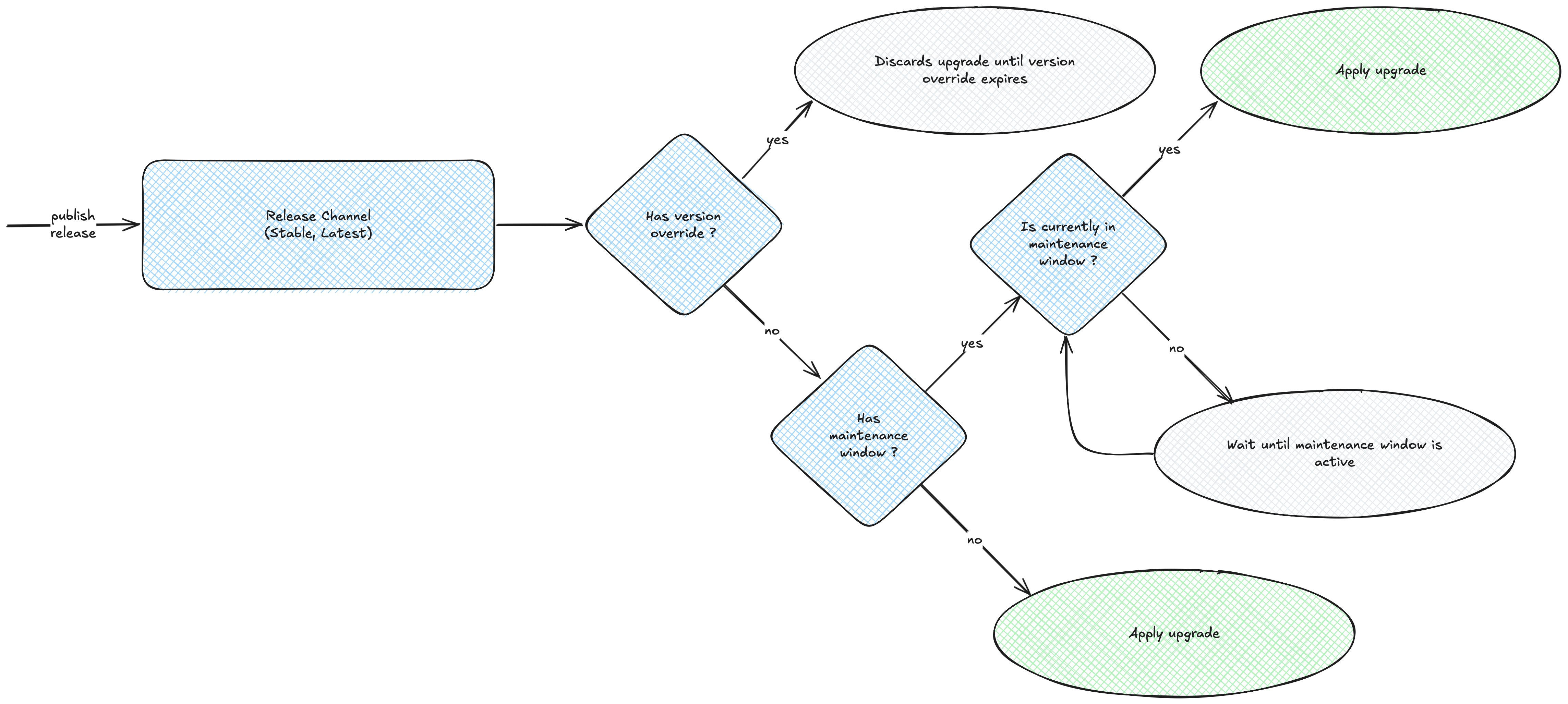Product versions
As an EVERTRUST Cloud customer, you benefit from automatic upgrades to the latest versions of EVERTRUST software. An instance is enrolled into a release channel, which determines when and how versions are applied. Overrides and maintenance windows are supported to give you more control over how and when upgrades are applied.

Versioning definitions
EVERTRUST Cloud products follow semantic versioning principles, which are reflected in version numbers structured as MAJOR.MINOR.PATCH.
-
MAJOR version: Incremented when incompatible API changes are made. May require planning and preparation for upgrades.
-
MINOR version: Incremented when new functionality is added in a backward-compatible manner. These updates enhance product capabilities while maintaining existing functionality.
-
PATCH version: Incremented for backward-compatible bug fixes and minor improvements. These updates focus on stability and security.
In addition, certain versions may include suffixes like -rc (Release Candidate) to indicate pre-release status.
Version numbers provide clear signals about the nature and impact of changes between releases, helping you understand the potential implications of upgrades to your environment.
Release channels
Release channels are the main way upgrades are distributed by EVERTRUST. A channel defines the current version of the software that is installed on an instance. If no override is set, the instance will be automatically upgraded to the latest version available in the channel.
| All events in orange will be announced on the status page. It gives instances in the Latest channel plenty of time to prepare for the upgrade on other instances in the Stable channel. |
Stable channel
The Stable channel is best suited for production workloads. It prioritizes stability over new features. On instances using the Stable release channel:
-
patches versions will be applied as soon as they are released;
-
minor versions will be applied around six month after their initial release, after being qualified for stability. A migration notice will be published to status.evertrust.io at least 30 days before the upgrade;
-
major version upgrades are always handled specifically and will be communicated in advance to customers.
Latest channel
The Latest channel is best suited for development and testing workloads. It prioritizes a fast delivery of new features over stability. On instances using the Latest release channel:
-
patches and minor versions will be applied as soon as they are released;
-
major version upgrades are always handled specifically and will be communicated in advance to customers.
Version overrides
Version overrides can be used to delay or expedite upgrades to a specific version. This can be useful to ensure compatibility with other systems or to test new features before they are rolled out to all instances.
The following override types can be requested :
-
Upgrade delay can prevent an automated planned update to take place, and defer it to a later date;
-
Expedite upgrade can upgrade an instance sooner than its planned automatic upgrade takes place.
Overrides should be requested through the EVERTRUST support portal, at least 48 hours before the planned upgrade.
Maintenance window
A maintenance window can be set to define a time frame during which upgrades can be applied. This can be useful to ensure that upgrades are applied during a time that minimizes business impact, or to define exclusion windows. A maintenance window is defined at the service subscription and can be later amended by submitting a request on the EVERTRUST support portal.
| If a maintenance window is supplied, it should allow for at least 4 continuous hours to apply patches and upgrades each week. |